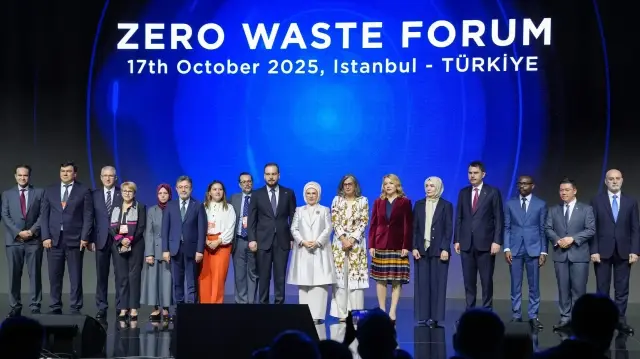Global forum in Istanbul tackles urban waste crisis with circular solutions

The International Zero Waste Forum in Istanbul has highlighted the urgent need to transform urban waste management as cities generate 2.2 billion tons of waste annually. Experts emphasized citizen participation and systemic policies to address the growing crisis, with 70% of the world's population expected to live in urban areas by 2050.
The International Zero Waste Forum convened in Istanbul on Friday, bringing together global experts to address the critical challenge of urban waste management through circular economy solutions. The event, organized in partnership with Türkiye's Zero Waste Foundation, relevant ministries, and UN agencies, focused on transforming cities where the majority of the world's waste is generated.
Citizen-Led Solutions and Local Success
A key panel titled "Cities Leading Circular Transformation" highlighted the importance of community involvement in waste management. Gabriel Vannelli, environment director for Vicente Lopez Municipality in Argentina, emphasized that citizen participation often outweighs technology or investment. He cited successful local composting initiatives near Buenos Aires that have diverted over 100,000 tons of organic waste from landfills through community training and equipment provision, simultaneously reducing methane emissions.
The Scale of the Urban Waste Challenge
Andre Dzikus, deputy director of UN-Habitat, presented sobering statistics about the global urban waste crisis. With 2.5 billion additional people expected to move to urban areas by 2050, cities face unprecedented waste management challenges. He revealed that 2.2 billion tons of urban waste are generated annually worldwide, with approximately 70% being improperly disposed of, significantly contributing to carbon emissions and environmental degradation.
Policy Imperatives for Sustainable Cities
Dzikus stressed that effective waste management must be central to sustainable development policies as global urbanization accelerates. "If we want to ensure sustainable development, we need policies that put cities at the center," he stated, advocating for systematic approaches to waste reduction, recycling, and composting. The forum served as a platform for sharing practical solutions that can be scaled globally to address the interconnected challenges of urbanization, waste management, and climate change.
Reklam yükleniyor...
Reklam yükleniyor...







Comments you share on our site are a valuable resource for other users. Please be respectful of different opinions and other users. Avoid using rude, aggressive, derogatory, or discriminatory language.